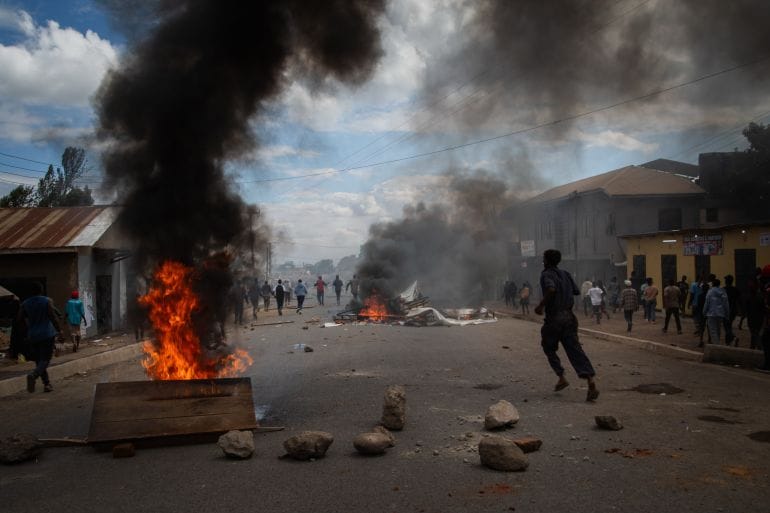According to the party’s spokesperson, John Kitoka, about 350 people were killed in Dar es Salaam and over 200 in Mwanza, with more casualties reported nationwide. AFP cited a similar toll from a security source, but Al Jazeera could not independently verify the figures.
The United Nations, however, reported a far lower count, citing “credible sources” indicating at least 10 deaths caused by security forces. The UN urged Tanzanian authorities to avoid excessive force and de-escalate tensions.
Protests erupted on October 29 after chaotic elections barred the country’s two main opposition parties, Chadema and ACT-Wazalendo, from participating. Demonstrations spread across Dar es Salaam and other cities, with vehicles, petrol stations, and police posts set on fire. The government responded with a military deployment, curfews, and an internet shutdown.
President Samia Suluhu Hassan, who succeeded John Magufuli in 2021, faced growing criticism for crackdowns on dissent, arrests of opposition leaders, and media restrictions. Both Tundu Lissu (Chadema) and Luhaga Mpina (ACT-Wazalendo) were barred from the race—Lissu was also charged with treason earlier this year.
Human rights groups, including Human Rights Watch and Amnesty International, have condemned the Tanzanian government for politically motivated violence, disappearances, and torture. UN experts had earlier warned of “unacceptable repression” ahead of the vote.
In Zanzibar, the ruling Chama Cha Mapinduzi (CCM) party claimed victory with 78.8% of the vote, though the opposition denounced the results as “massively fraudulent.”
Protests have since spread nationwide, prompting the postponement of school reopenings. The army chief vowed that the military would continue to work with security forces to “restore order.”



